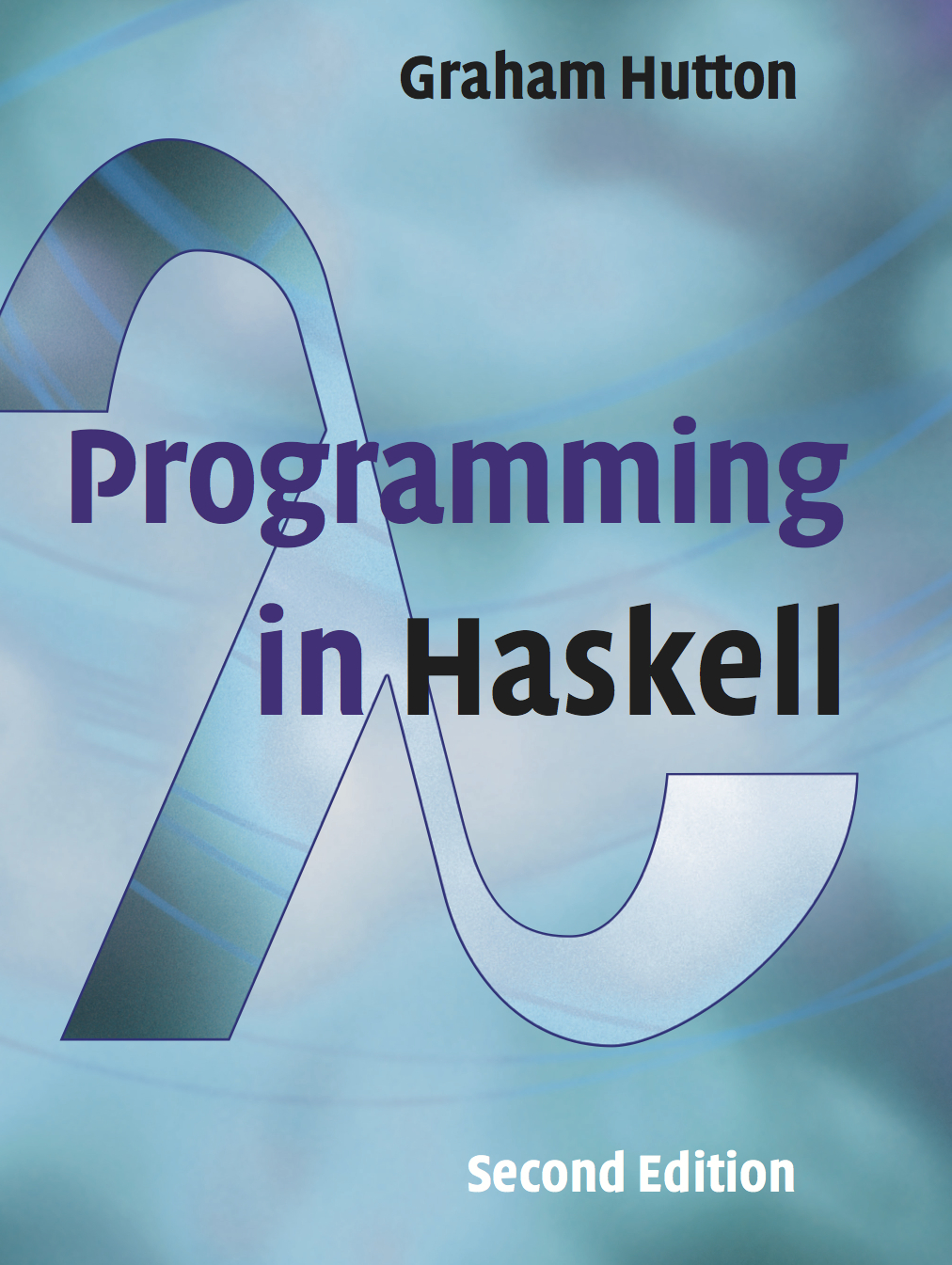
2nd Edition
Graham Hutton, University of Nottingham
Cambridge University Press, 1st September 2016
320 pages, 120 exercises, ISBN 9781316626221
An extensively updated and expanded version of the best-selling first edition.
Haskell is a purely functional language that allows programmers to rapidly develop clear, concise, and correct software. The language has grown in popularity in recent years, both in teaching and in industry. This book is based on the author's experience of teaching Haskell for more than twenty years. All concepts are explained from first principles and no programming experience is required, making this book accessible to a broad spectrum of readers. While Part I focuses on basic concepts, Part II introduces the reader to more advanced topics.
This new edition has been extensively updated and expanded to include recent and more advanced features of Haskell, new examples and exercises, selected solutions, and freely downloadable lecture slides and example code. The presentation is clean and simple, while also being fully compliant with the latest version of the language, including recent changes concerning applicative, monadic, foldable, and traversable types.
ForewordPreface
Part I. Basic Concepts:
1. Introduction
2. First steps
3. Types and classes
4. Defining functions
5. List comprehensions
6. Recursive functions
7. Higher-order functions
8. Declaring types and classes
9. The countdown problem
Part II. Going Further:
10. Interactive programming
11. Unbeatable tic-tac-toe
12. Monads and more
13. Monadic parsing
14. Foldables and friends
15. Lazy evaluation
16. Reasoning about programs
17. Calculating compilers
Appendix A. Selected solutions
Appendix B. Standard prelude
Bibliography
Index
The full table of contents, foreword and preface is available in a PDF file.
Graham Hutton is Professor of Computer Science at the University of Nottingham. He has taught Haskell to thousands of students and received numerous best lecturer awards. Hutton has served as an editor of the Journal of Functional Programming, Chair of the Haskell Symposium and the International Conference on Functional Programming, and Vice-Chair of the ACM Special Interest Group on Programming Languages, and he is an ACM Distinguished Scientist.Lecture slides for chapters 1-10 are available in azip file. These slides may be used or modified for any educational or training purpose provided the original author is acknowledged.
Haskell code for all the extended programming examples is available in a zip file.
Course instructors can request aninspection copy of the book, together with a large collection of introductory and advancedexams and answers based on the content.